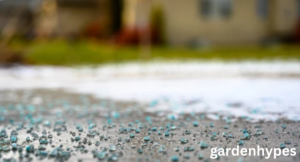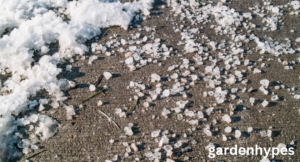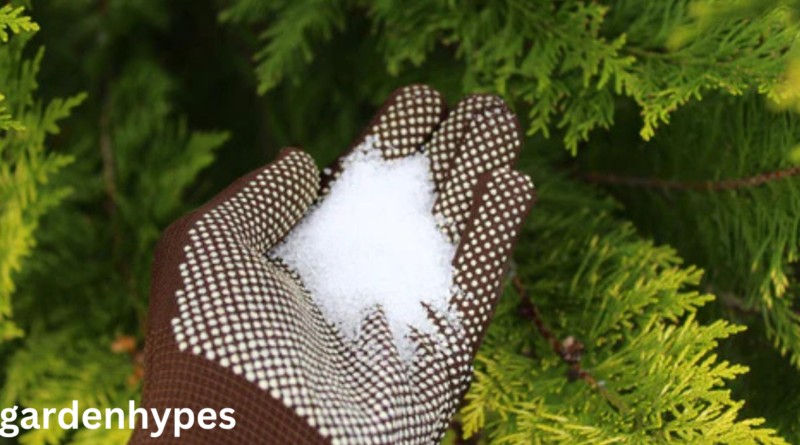Will Epsom Salt Melt Ice? Everything You Need to Know
Introduction
Winter is a beautiful season, but along with the snow comes a big problem—will epsom salt melt ice. From slippery driveways to frozen sidewalks, ice can turn daily routines into dangerous tasks. People have been using salts for centuries to combat icy conditions, but not all salts are created equal. You’ve probably heard of rock salt or regular table salt being used on roads, but what about Epsom salt?
click in link Homemade weed control
Epsom salt, commonly known for its use in baths, gardening, and even beauty treatments, has sparked curiosity: Can it really melt ice? Some people swear by it, while others think it’s a waste of time and money. The confusion comes from the fact that while Epsom salt is technically a salt, it’s not the same as the common salts we usually see tossed on icy roads.
This article dives deep into the science, myths, and practical experiences surrounding Epsom salt as an ice melter. We’ll uncover whether it actually works, when it’s useful, and whether you should consider it for your winter toolkit. If you’ve ever wondered whether sprinkling some of that bath salt on your frozen steps will make a difference, you’re in the right place.
What is Epsom Salt?
Epsom salt isn’t your ordinary kitchen salt. Scientifically, it’s known as magnesium sulfate (MgSO₄). Unlike sodium chloride (NaCl), which is what we call table salt, Epsom salt is made up of magnesium, sulfur, and oxygen. It was first discovered in the town of Epsom in England—hence the name—where people noticed its healing properties in spring water.
For centuries, Epsom salt has been used for various purposes:
- Health and relaxation: Adding it to bath water helps relax muscles and relieve soreness.
- Gardening: Plants love the magnesium content, which boosts growth and flowering.
- Beauty and cleaning: Used in scrubs, foot soaks, and even as a mild household cleaner.
Because of these versatile uses, most households may already have Epsom salt lying around. But does this household staple double as a winter ice-melting hack? That’s where things get interesting. Unlike sodium chloride, which is famous for its ice-fighting properties, magnesium sulfate isn’t often marketed as a de-icing product. But since it is still a salt, many people wonder if it can pull off the same trick.
Before we jump into whether it works or not, it’s essential to understand how any type of salt actually melts ice.
How Salt Works to Melt Ice
The secret behind salt melting ice lies in a scientific principle called freezing point depression. Normally, water freezes at 0°C (32°F). But when salt is added to water or ice, it lowers the freezing point, meaning the water now needs to get much colder before it turns solid.
Here’s how it works in simple terms:
- When you sprinkle salt on ice, some of the ice begins to melt naturally because of air temperature or pressure.
- The salt dissolves in that thin layer of water, creating a salty solution.
- This salty solution has a lower freezing point, so it prevents the melted water from turning back into ice.
- As a result, more ice continues to melt, and the cycle goes on.
Different salts lower the freezing point by different amounts. For example:
- Table salt (NaCl) is very effective down to about -9°C (15°F).
- Calcium chloride (CaCl₂) works even better, functioning at temperatures as low as -29°C (-20°F).
- Epsom salt (MgSO₄) also lowers the freezing point, but not as effectively as sodium or calcium salts.
So, scientifically speaking, Epsom salt can melt ice, but how well it works depends on the outside temperature and the amount used.
click in link Homemade weed control

Does Epsom Salt Really Melt Ice?
This is the million-dollar question. Scientifically, yes, Epsom salt can melt ice because it still disrupts the freezing process. However, its effectiveness is noticeably weaker than traditional de-icing salts.
Several small experiments and homeowner tests have shown that while Epsom salt does help melt ice, it takes longer to work and often requires a larger amount compared to rock salt. That means if you sprinkle a thin layer of Epsom salt on your driveway, you may not see quick results. But if you apply it generously, especially when temperatures are not extremely low, it can help reduce ice formation and make surfaces less slippery.
One reason it’s less effective is that magnesium sulfate doesn’t dissolve as quickly as sodium chloride in cold conditions. Plus, it’s not designed or manufactured for de-icing, so the granules may not spread as evenly as rock salt crystals.
So, while you can absolutely try it in a pinch—especially if you already have some in your home—it shouldn’t be your first choice for heavy-duty ice control.
Pros and Cons of Using Epsom Salt on Ice
Like most DIY solutions, using Epsom salt on ice has both advantages and drawbacks.
Pros:
- Eco-friendly option: Unlike rock salt, which can harm soil and plants, Epsom salt is plant-friendly and even beneficial in small amounts.
- Less corrosive: It’s gentler on concrete, metal, and surfaces compared to sodium chloride.
- Multi-purpose: If it doesn’t fully work on your ice, you can always use it for gardening, baths, or cleaning.
Cons:
- Less effective: It doesn’t melt ice as quickly or efficiently as traditional de-icing salts.
- Expensive: Epsom salt costs more than rock salt, making it impractical for large areas.
- Limited use in extreme cold: At very low temperatures, its effectiveness drops significantly.
Best Use Case: If you only have a small area to clear—like steps, a porch, or a pathway—and temperatures aren’t extremely low, Epsom salt can help. But for large driveways or heavy snowstorms, you’ll likely need stronger alternatives.
click in link Homemade weed control

Faqs
Q1: Can Epsom salt melt ice like regular salt?
Yes, Epsom salt (magnesium sulfate) can melt ice, but it is not as effective as regular rock salt (sodium chloride) or calcium chloride. It works slower and requires more quantity.
Q2: Is Epsom salt safe for plants and soil when used on ice?
Yes, unlike rock salt which can damage plants and soil, Epsom salt is generally safe and even beneficial in small amounts because it provides magnesium to the soil.
Q3: Does Epsom salt work in very cold temperatures?
Not effectively. Epsom salt is less efficient in extremely cold weather. It works better in mild freezing conditions.
Q4: Is Epsom salt cheaper than rock salt?
No, Epsom salt is usually more expensive than rock salt, making it impractical for melting ice over large areas.
Q5: Can Epsom salt damage concrete or metal surfaces?
Epsom salt is less corrosive compared to rock salt, meaning it causes less damage to concrete, pavements, and metals.
Q6: When is it best to use Epsom salt for melting ice?
It is best used on small areas like steps, walkways, or door entrances when rock salt is not available.
